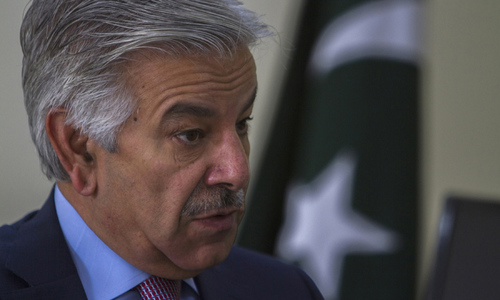Adviser to Prime Minister on Foreign Affairs Sartaj Aziz on Thursday said the Muslim community across the world must "play an active role" to help Rohingya Muslims in western Myanmar, Radio Pakistan reported.
He was addressing a meeting of Organisation of Islamic Conference (OIC) council of foreign ministers in Kuala Lumpur, Malaysia.
Aziz said Pakistan has always supported oppressed Muslim populations across the world, raising its voice against human rights violations in "Kashmir, Palestine and other parts of the world".
Read more: Raheel Sharif appointed chief of Islamic military alliance, confirms Khawaja Asif
He emphasised that "the plight of Rohingya Muslims" continues to pose a major challenge to the "conscience of the international community" and the "Muslim Ummah" must mobilise its efforts to alleviate the crisis.
Aziz indicated that the issue was no longer a domestic issue for Myanmar and that it transcended international borders. He urged Mynamar to respect international law and accept the Rohingya Muslims as the legal populace of Myanmar.
The PM's adviser on foreign affairs said that Prime Minister Nawaz Sharif wrote a letter to the United Nations secretary general, urging the international community to intensify "diplomatic and moral pressure" on the Myanmar government and "grant the requisite rights to Rohingya Muslims and provide them with relief".
Appreciating Myanmar's Advisory Commission on Rakhine State set up in collaboration with the Kofi Annan Foundation in September 2016, Aziz also urged the Myanmar govt to allow media access and distribution of humanitarian aid in areas affected by the recent spate of violence.
Hundreds of Rohingya Muslims are fleeing a military crackdown in western Myanmar to Bangladesh, trying to escape an upsurge of violence.
Some of the Rohingya were gunned down as they tried to cross the River Naaf that separates Myanmar and Bangladesh, while others arriving by boat were pushed away by Bangladeshi border guards and may be stranded at sea, residents said.
The bloodshed is at its most serious since hundreds were killed in communal clashes in the western Myanmar state of Rakhine in 2012. It has exposed the lack of oversight of the military by the seven-month-old administration of Nobel Peace Prize winner Aung San Suu Kyi.
The stateless Rohingya are seen by many Myanmar Buddhists as illegal immigrants from Bangladesh. Soldiers have reportedly locked down areas where the vast majority of residents are Rohingya, shutting out aid workers and independent observers.















































